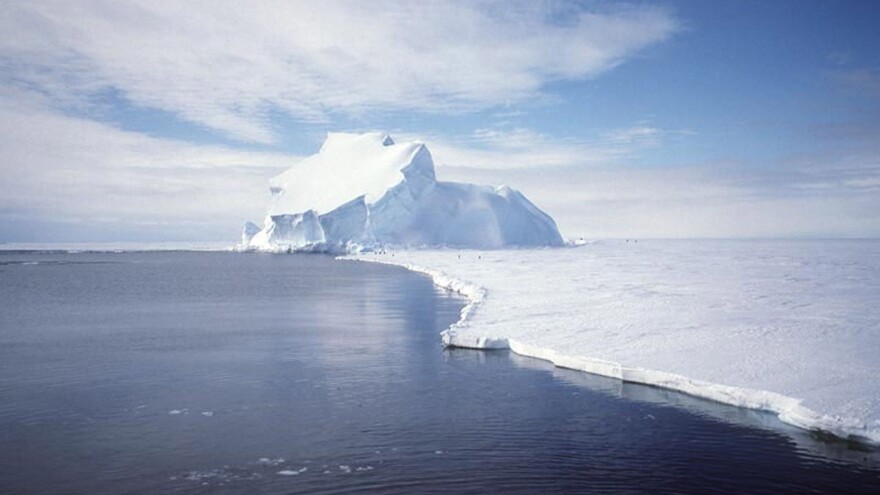Scientists today laid out a truly worst-case scenario for global warming — what would happen if we burned the Earth's entire supply of fossil fuels.
Virtually all of Antarctica's ice would melt, leading to a 160- to 200-foot sea level rise.
"If we burn it all, we're going to melt it all," says Ken Caldeira, a climate scientist at the Carnegie Institution for Science.
The huge Antarctic ice sheet stores more than half of the planet's fresh water, and Caldeira had long wanted to know how much of that ice would melt if people just kept burning fossil fuels until they're gone.
"I've been wondering about this question for 35 years but was never able to address it," he says, explaining that ice sheet science has only recently gotten sophisticated enough.
He and some colleagues used an estimate of how much fossil fuel is left in the ground to do computer simulations. They found that if current trends continue, sea level is expected to rise 2 or 3 feet this century.
Then the rate of sea-level rise will start increasing, Caldeira says. "And so we'll have something like 100 feet of sea-level rise 1,000 years from now, which means basically abandoning most of the major cities of the world."
He says places such as New York City, London, Paris, Rome, Tokyo and Washington, D.C., would all be under water.
The study appears in the journal Science Advances.
Caldeira believes the world has basically done nothing to address human-made climate change. "So to ask ourselves, well, what would happen if we continue to do nothing, I think, is a valuable exercise," he says. "It would make a lot of sense for us to really think about transforming our energy system to one that does not use the sky as a waste dump."
But others say this worst-case scenario does not seem plausible.
"I don't think there are many people who have thought about it who think we will burn all the fossil fuels on the planet in the next few hundred years," says Michael Levi, who studies energy policy and climate at the Council on Foreign Relations.
"If you create implausible global scenarios, you get truly horrifying outcomes," Levi says. "If you create plausible but bad scenarios, you get bad outcomes. That's not a surprise either."
This study also contains less-extreme scenarios. Those are the kind that interest Levi, since he says they're more likely to be ones we might actually face.
Scientists have said they think the West Antarctic ice sheet has already reached a tipping point and that its disintegration is likely unstoppable.
Copyright 2020 NPR. To see more, visit https://www.npr.org. 9(MDA5MTc0MDI0MDEzMzE4MjI4ODdlOTk4MA004))



